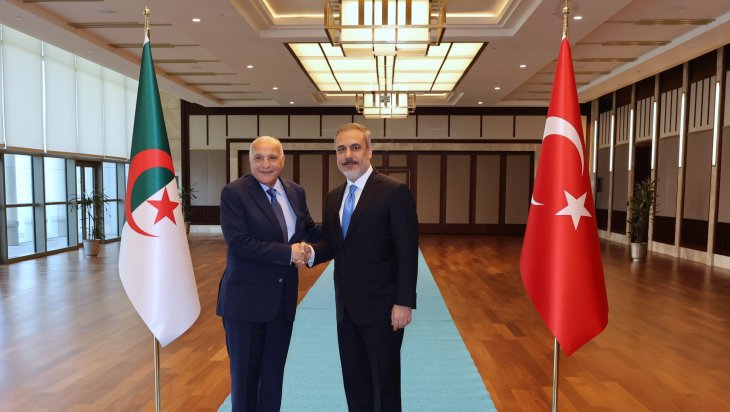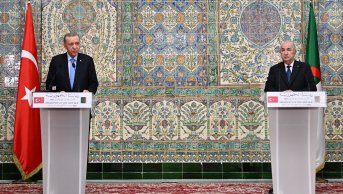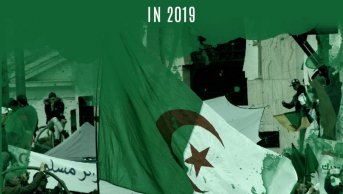Algerian Diaspora in Türkiye-Algeria Relations: Cross-Cultural Adoption and Global Strategy Adaptation

This week Algerian Foreign Affairs and National Community Abroad Ahmed Attaf’s visit to Türkiye came to enhance the excellent and historical relations between the two Mediterranean countries. As it focused on geopolitics, economics, trade, military and security, education, and culture, it would shape the fate of the North African region and the African Sahel geopolitics and economics shortly.
In May 2022, after President Abdelmadjid Tebboune’s visit to Türkiye, and his shortstop last Spring to Istanbul, meeting his Turkish counterpart Recep Tayyip Erdoğan, the two countries’ relations passed their symbolic steps, which in these days domestic politics and geopolitics matter. The historical ties between the two pivotal countries in the MENA region and the Mediterranean go back to the time of the Ottoman era. The relations between Algiers and Ankara entered truly a new face based on trust and in-depth cooperation since the 2006 Cooperation Treaty and the 2020 Strategic Cooperation Treaty, in the aftermath of President Recep Tayyip Erdoğan's visit to Algeria in February 2020. He was the first foreign country leader to visit Algeria following President Tebboune's election in December 2019.
The visit of Abdelmadjid Tebboune in 2022, had shown how far the two countries’ leaders can go, not only on economic investments but also investing on the potential of the human capacity in both countries. The healthy relations between Algiers and Ankara were fortified by the actions of Algeria’s new foreign policy doctrine based on preemptive and active diplomacy, which was settled by the Algerian president who is reshaping Algerian diplomacy after three decades of stagnation.
How are Algerians abroad looking at the new authorities in Algiers?
Pro-Türkiye elites, media, politicians, and civil society actors seem in favor of the new role of Algiers in regional and international politics. A sentiment that is shared by the majority of Algerians at home — As a result, Algerian authorities are showing a genuine concern towards Algerians living abroad — the changing of the name of the Algerian Foreign Affairs Ministry to the Ministry of Foreign Affairs and National Community Abroad is a positive sign.
This leads a ing to the new relations between Algerian authorities and Algerians abroad, not in the sense of a definition of the term “diaspora” in its classic and historical terminology. Algerian communities abroad historical experiences fit with the trajectory of local political and economic imperatives. In a matter of domestic political violence such as wars, during the Algerian War of liberation against the French colonial army in 1954-1962, and decades later during the Algerian bloody civil war in 1992-2000. These two historical moments in Algeria's post-modern politics set sociological and economic approaches of the Algerian communities abroad. Approaches based on the elements of exile, integration, and post-integration in the host countries, for instance in Western countries in general, and in France in particular.
In the age of fast communication tools, means, and affordable movement of people across the world, the idea of exile became easier, creating the dichotomy of the parameters of permanent exile and nostalgia.
In general, Algerians abroad are neither homogenous nor coherent groups. This is why it is difficult to speak about the Algerian community as one bloc, therefore, one sees it as dispersed groups so that one could use the term of diaspora in its intellectual tragic meaning. This is because of ethnic diversity sometimes hostility, political and ideological heterogeneity, and even social status factors that frame the role of the interactions of these communities in the host countries.
As the social, economic, and political conditions of the community members go in the host countries the orientations go with the new authorities’ approach and priorities in Algiers. The latter is reaching out to the community members abroad, trying to look at the Algerian communities abroad as one group — at least from the role of the community’ members' patriotic attachment.
Political inclusion
The question of the relationship between the authorities and Algerians abroad depends a great deal on the outcome of the ongoing political process and economic reforms in Algeria. The authorities are having the benefit of the doubt to get through to the Algerian elite abroad to be a part of the inclusive political process and economic reforms.
Thus, the role of Algerian nationals in Türkiye should be determined to strengthen the outstanding relations between Algiers and Ankara. Algeria-Türkiye economic relations have been well developed, many projects and agreements in different fields, energy, trade, agriculture, construction, education, culture, and tourism were signed during President Abdelmadjid Tebboune’s state visit to Türkiye in 2022.
Algeria is Türkiye's largest trading partner in Africa It became in recent years a silky route for Turkish investment. In 2015, the volume of Turkish investments in Algeria exceeded 6 billion dollars. While in 2018 it stands at around $4.5 billion. In addition, the 7 billion represents the turnover of construction companies. This was set to be increased to $10 billionsoon.
Today, Türkiye is also considered the largest foreign investor and operator in Algeria outside of the hydrocarbon sector. Türkiye opens new horizons for Algerian contribution, abolishing the visa for people under 15 and over 65, and signing MoUs and agreements for students and high-profile academic exchange.
There are approximately 10,000 registered Algerian nationals living in Türkiye. Türkiye is at the top of the list of preferred destinations for Algerians who want to spend their vacation time abroad. So, the number of Algerians visiting Türkiye in 2018 reached 300,000 people, adding newly graduated students who want to continue their post-graduation studies in Turkish universities and research centers in TÜBİTAK program.
Algerian investors are buying a lot of real estate in Türkiye, especially after the decision, published in 2018 to grant Turkish nationality to real estate investors. This gives them a strong motivation to enter the Turkish real estate market, at the level of the countries of the Middle East and Europe.
The trade volume between Algeria and Türkiye exceeds $6 billion in 2022, according to official records. Turkiye exports to Algeria vehicles and their spare parts, iron and steel, textile products, volatile oils, electrical appliances, and clothing, whereas, Türkiye imports gas and liquefied oil, crude oil, and energy products which constitute 97% of Algerian exports to Türkiye.
A historical chance to consider
There is an excellent chance to use all the capabilities, skills, and resources of both countries. Both countries’ leaders have a vision, considering this historical opportunity, supporting the elite in both countries to develop for the success of the new Algeria-Türkiye strategic partnership rapprochement. Both countries’ new ambassadors know well that diplomacy is based on human potential and cultural understating.
Subsequently, Algerian community members in Türkiye, notably, the motivated members in the academic, and civil society fields, and some business-oriented members are trying to reach out to their Turkish counterparts. They are demonstrating a sense of networking “diplomacy,” pushing further for the strategic global rapprochement between the two countries, sort of soft lobbying tactics to get close to the country’s decision-making circles in Ankara and Istanbul.
Moreover, despite the vital economic sector cooperation between the two countries, Algerian nationals living in Türkiye are advocating for the success of this strategic rapprochement; they have put their belief in the reinforcement of politics and geopolitics relations between Ankara and Algiers in light of the ongoing turmoil in world affairs politics, where the two countries emerge as credible stabilizing powers and axis in their regional and sub-regional geopolitics context. Hence, Algerian nationals in Türkiye are looking forward to seeing bold decisions be taken geopolitically and economically alike in the shortcoming second state’s visit of President Recep Tayyip Erdoğan to Algeria.
Algerians Türkiye-friendly at home and in Türkiye look to Türkiye as a rising state and political and economic model that could work in Algeria today. Ankara on the other hand, considers Algeria as the gateway to the Maghreb and Africa, while Algeria as a pivotal state in the Maghreb and West-Med considers Türkiye as a strategic ally in Algeria’s Euro-Asia policy vision and position.
In Sum, the diaspora’s role should not be summed up by host countries’ decision makers and elite as just a local “popular dish” as an element of folklore diplomacy like Western countries scornfully see the “diaspora;” meanwhile, the diaspora should show its wisdom, competence, and energy for the sake of its origin country’s best interest cross-cultural adoption and global strategy adaptation.










